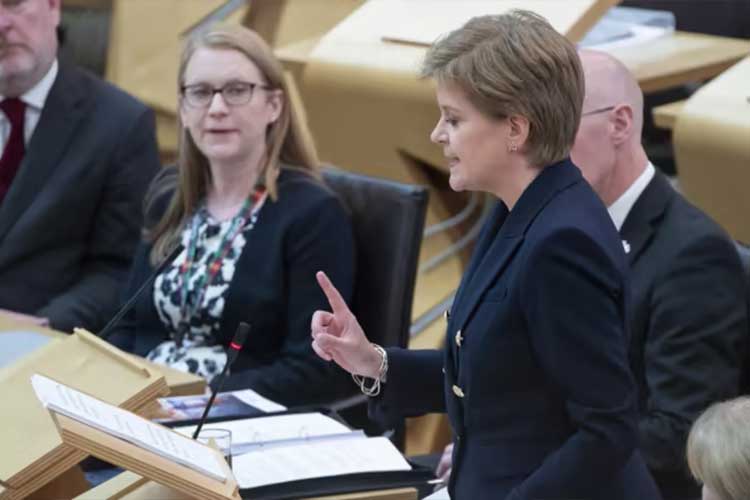

Nicola Sturgeon outlines programme of support for households during‘Ëœhumanitarian crisis‘
September 19, 2022 | Staff Reporter | Scotland | Real Estate

Scotland’s first minister has announced a freeze on rents in the social and private sectors and a moratorium on evictions to shield people from the cost of living crisis. In her speech outlining the annual programme for government, Nicola Sturgeon said that she was frustrated by the limits placed on her power to act by Westminster in what she called a time of “humanitarian emergency”.
“The Scottish government does not have the power to stop your energy bill soaring, but we can and will take action to ensure that your rent doesn’t rise,” Sturgeon said. The emergency legislation to protect renters will be implemented immediately and last until at least March 2023.
Sturgeon did not set out the cost of the policy to the Scottish finances but she said that faster inflation meant that the devolved government’s budget was worth £1.7bn less than when it was published last December. Higher-than-anticipated inflation meant that public-sector pay increases would cost £700mn more than budgeted for, she added.
“This current crisis highlights, starkly, the pressing need for independence,” Sturgeon told the Holyrood parliament. The rent freeze is expected to draw opposition from property investors who are also facing soaring living costs.
UK inflation hit a 40-year high of 10.1 per cent in June. David Alexander, chief executive officer of DJ Alexander Scotland, Scotland’s largest lettings and estate agency, said the move was “surprising” and unfair on landlords grappling with financial pressures. “They are just killing the rental market,” he said. “If you’ve borrowed money, your costs are going up, and it seems unfair that rents can’t keep up with inflation.”
The mayor of London, Labour’s Sadiq Khan, has previously proposed a similar freeze on rents for the capital’s property market. “We will take immediate action to protect tenants in the private and in the social rented sectors,” said Sturgeon, and called on London to implement an “enhanced windfall tax” on energy producers to prevent an “avalanche” of business failures.
The first minister announced the fuel insecurity fund would be doubled from £10mn to £20mn this year, with an increase of £5mn to discretionary housing payments to help with energy bills. To support families through the winter, the government will also increase the “child payment” to £25 per week per child from £20 on November 14.
Sturgeon confirmed she would introduce a referendum bill to enable Scotland to hold another plebiscite without the approval of Westminster, pending the outcome of a hearing into the legality of such legislation by the UK Supreme Court next month. “This current crisis highlights, starkly, the pressing need for independence,” Sturgeon told the Holyrood parliament. “We are being reminded every day that where and in whose hand power lies really matters.”
Douglas Ross, leader of the Scottish Conservatives, said Sturgeon had the wrong priorities and this was “unacceptable when people are struggling”.
Scotland’s budget deficit was £23.7bn, or 12.3 per cent of gross domestic product, in 2021, according to official data released last month. Her speech setting out her government’s agenda comes less than a week after she was forced to intervene in wage talks with public-sector unions to prevent strikes that were due to close primary schools and nurseries in some parts of Scotland. Strikes also marred the post-coronavirus return of Edinburgh’s annual festivals in August.